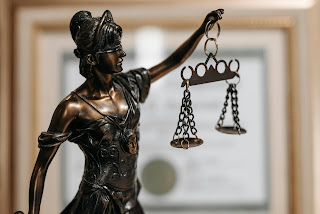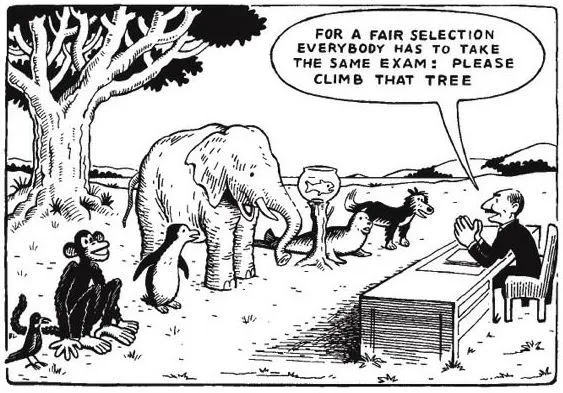
The concept of Justice both in Tarot (XI) and in society more widely is often misunderstood. When people think of Justice they tend to think of right and wrong, or virtue and vice, they tend to perceive Justice as being inherently good and Injustice as inherently evil but this isn't necessarily the case and the reason for that is complex.
Justice is not a question of morality; that is a statement which might anger you or make you feel perturbed to read, it might be something you immediately begin to formulate arguments against but in order to survive in the modern world you need to understand this concept in its entirety. I do single out the modern world here because in this age of information where we have access to news and updates from around the world, we are more aware today of injustices being committed than we have ever been. I see the news reports, I see the comments on social media, I hear the message people express so I know the argument you'll already be forming against my statement but my response is that your argument is misplaced.

There is a vast difference between equity and equality, and this difference is something that society is finally waking up to face. Equality means treating everyone the same way, but equity acknowledges the circumstances of the individual and recognises where one has an advantage over another, or where one is privileged and the other is not. This awareness which society is realising exposes the con of equality - that if you treat everyone the same, you do not rebalance the scale, you preserve the status quo. If you have a set of scales that are imbalanced and continue to add equal weights to both sides the imbalance is not corrected, even if the magnitude of the imbalance lessens over time, the scales nevertheless remain tipped.
Understanding that equality despite the impression the word gives does not deliver what you expect is important if you want to correct the root cause, i.e. if you want to remove the imbalance. Similarly understanding the concept of Justice is important if you want to achieve your goals.
Justice is ultimately defined by justification, not by objective truths, or morality, or ethics, or any other social construct. Justice is determined by perception, an outcome can be both just and unjust simultaneously if two people disagree on the justification because it is a matter of opinion. Now you might call upon the judiciary, and argue that the law is the written word and is not a matter of opinion but again you would be wrong. Two trials, two judges, two plaintiffs and two accused can be brought before two courts in the same jurisdiction where the same laws apply, both accused of the same thing and the outcome can be different for both; one may be charged and the other may not. The purpose of the judiciary is to interpret the law, the outcome of a court ruling by a judge is therefore a matter of opinion, it just happens to be one that is legally binding.
What determines the outcome of the trials are primarily the opinion of the judge, and a jury if one is included, and by how persuasive the argument for the accused is made. Understanding this process exposes just how circumstantial the justice system is. Even the laws themselves, which are proposed by the executive, and formalised by the legislature, and written into law, are all shaped by the politicians and representatives who draft them. The more you understand this process the more subjective it becomes and the more you should realise that you can do almost anything if you have a good enough lawyer that can make a persuasive argument to justify it.
Some might call me cynical for this view, and I admit there is cynicism here, but my view is driven by pragmatism above all else. The justice system is corrupt, of that I make no aspersion as this is self-evident. However, the view that it is not functional because of this is misguided, and misrepresents the point - that this is what it was designed to do. Justice is not about right and wrong, or morality, it is about justification nothing more.
The question of objective morality, ethics, virtue, and everything in between are all encompassed within the concept of Karma, which unfortunately has no Earthly body to enforce it. The idea that bad things happen to bad people, and that good things happen to good people, is encompassed within the concept of Karma, and is taught to children through Santa Claus, and the Easter Bunny, and pedalled to adults through Religious teachings but put these to the test in the real world and the imbalance between action and consequence is clear, just as children don't actually receive coal on Christmas few people face the consequences of their actions in society as a whole.
Understanding that injustice exists because others believe their actions are justified and that you disagree with their judgement is important if you want to make peace with yourself and accept the reality of the world we live in. Take this to heart and you will know that the only way to remove evil from the world, requires that you both choose not to contribute to it, and actively contribute something good, otherwise whilst you do not add to the imbalance, you don't help to correct it either.
Know and understand that those who do not care about the imbalance actively contribute to it, whether through conscious desire or through action without thought of consequence and you can begin the process of recognising where the true threat lies in modern society, not in the laws that are written for or against you but in the minds of those around you. Laws to legalise gay marriage for instance did not herald a tide of change, they were the flotsam and debris that washed ashore after the tide of change had already broken, the law did not change the minds of the populace, those minds had already changed, the law simply caught up.
If your definition of Justice in this world is one that you define by morality and ethics, defined by good and evil, right and wrong, virtue and vice, then you must accept that waiting for a law to change to enact justice by this definition is a fool's errand.
In the Major Arcana the Justice card is one of three most misunderstood, along with The Devil (XV), and Death (XIII), they each represent a concept the words for which do not reflect their true meaning. The Devil represents temptation and bargaining, Death represents dramatic change, endings and new beginnings or transitions, Justice represents justification. The card that represents the concept of right and wrong and the repercussions of those actions in reality is Judgement (XX) - it is Judgement that truly depicts action and consequence, yet once again in the modern world there is no body to enforce Judgement, the religious belief that only God can Judge you holds true, if such a deity exists, it is no surprise then that Judgement is the penultimate card of the Major Arcana, succeeded only by The World (XXI) - quite literally the only thing that survives when we pass on, whether Judgement truly exists is something we will not know until we die and find out if we are given presents, or coal, or something else entirely, or indeed nothing at all.

No comments:
Post a Comment
All comments are moderated before they are published. If you want your comment to remain private please state that clearly.